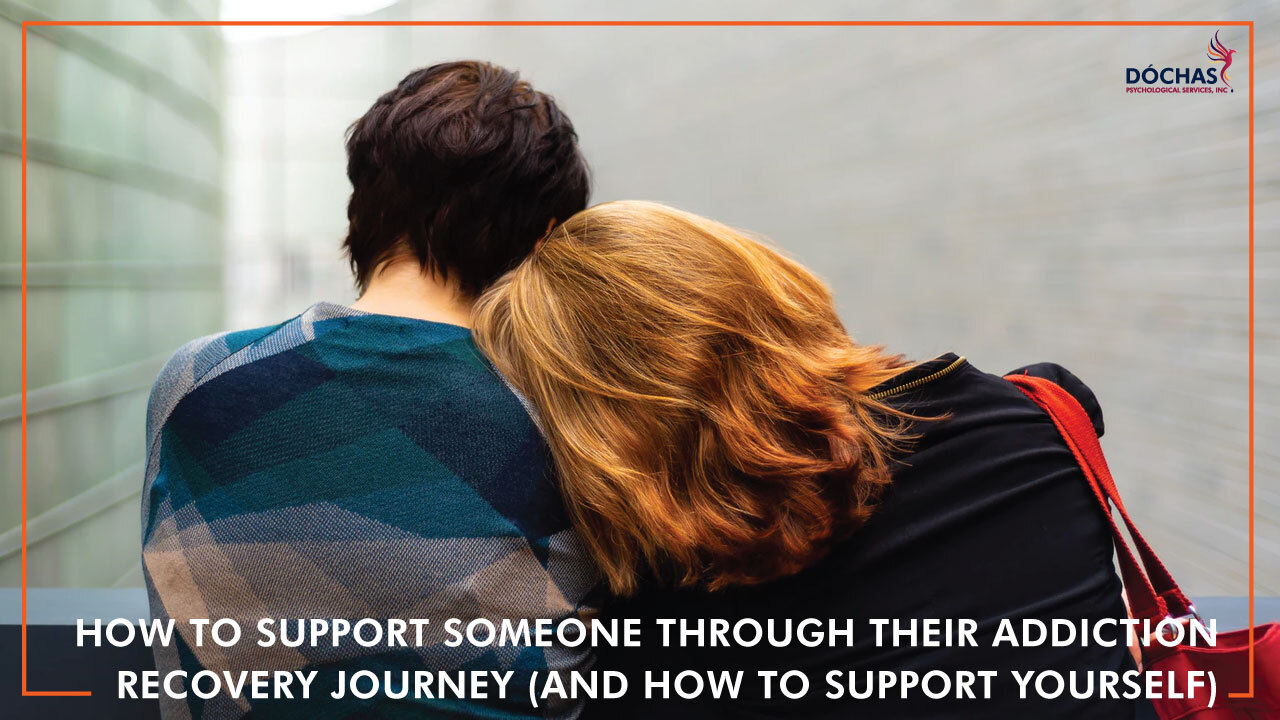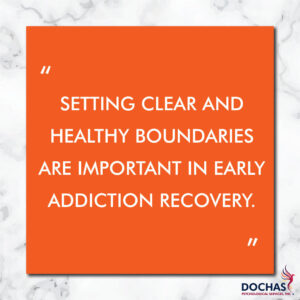It’s tough to know how to support someone through addiction, or even someone who is in recovery. You might question everything you say (or want to say) and maybe you wonder “Am I giving them the support they need?” We hear this a lot from our clients, and it can help to have some guidance or prompts on how to support someone through addiction recovery, and how to support yourself.
Supporting someone through addiction recovery
Learn more about addiction
Our first piece of advice is to educate yourself about addictions, including the type of addiction your person has and where they lie on the addiction spectrum.
Look into the recovery program or support group your person might be in, too. This will help you get a glimpse into their challenges and familiarize yourself with what they’re doing to recover.
Create a sober network
We don’t live in a sober society, and this makes the recovery process unbelievably difficult. Creating sober activities and social connections can be a huge part of supporting someone through addiction recovery.
Organize sober BBQ’s, camping trips, friends nights, rock climbing, leisurely walks, fitness classes, or book clubs. When your loved one can turn to you for a fun time they know won’t disrupt their sobriety, they’ll likely feel a weight lifted.
Make conversations a judgement-free zone
It’s important to try and have a non-judgemental approach to your conversations about addiction and recovery. If your person feels comfortable with you to talk about their journey, take this as a meaningful compliment.
It can be hard to participate in conversations about addiction. You might have some negative emotions toward your loved one, or maybe you aren’t informed and you’re not sure what to say. Either way, it can be helpful to seek your own support so you feel comfortable in these conversations, and so you can know you’re providing support. Therapists and alcoholics anonymous (AA) groups are great resources for people who are supporting someone through addiction recovery.
Manage your expectations
With any relationship, it’s important to manage your own expectations for another person’s decisions. This is a big part of supporting someone through addiction.
Be honest with yourself about your limitations for supporting your person. If there’s tension or conflict surrounding your loved one refusing to get help with their addiction, you may have to step away so you can be emotionally ready to support them when they are ready for it.
Sign up for the long-run
Addiction recovery is a lifelong process. It’s not something that can be achieved overnight, and it takes constant work.
When you accept that your support will be long-term, you will be better equipped to support them through the struggles they may experience along their recovery journey.
Ask what they need
For some reason, we feel like we need to figure out what other people need all on our own. One of the most important suggestions we can make is to ask your person what they need.
“What can I do to support you?” They will tell you! This guidance will help you identify what they need or want during their recovery instead of constantly guessing and overthinking.
Supporting yourself through your loved one’s addiction recovery
Give yourself grace
It’s okay to struggle with this. You’re not perfect. No one expects you to do or say the right thing every time. This may be a new process for you, or the first time your loved one is fully committing to this journey, and you both may stumble or make mistakes. Either way, it’s okay to make mistakes and to learn from them.
Protect yourself
Mental health challenges are not an excuse to abuse loved ones. This process is hard for both of you, but it’s important that you ensure you are not being abused emotionally or physically.
Set boundaries when you need to
Not only are boundaries okay for relationships, they are necessary! Setting clear and healthy boundaries are particularly important in early addiction recovery.
If boundaries is a new territory for you, click here for a ton of our resources that will help you out.
Prioritize your self-care
We love to talk about self-care here, because it’s so important! This can look like setting and sticking to your boundaries, seeking your own mental health support, talking to your own support system, and allowing sadness and/or guilt emotions without letting them consume you.
Remember, you’re allowed to live your life and to take breaks when you need them. Practice self-kindness and engage in activities that bring you joy.
Recognize that there’s no right or wrong way
Just like recovery, your support journey is unique. What works for others might not work for you, and that’s okay.
Remember that both you and your loved one are finding yourselves in this journey, and you’re working toward building a healthier relationship. You may not “get back” to the relationship you had prior, but this is a wonderful opportunity to strengthen your bond.
Looking for your own support?
We’d be more than happy to support you through your support journey! Send us an email at info@dochaspsych.com and let’s chat about how we can help you.
About Dochas Psychological
Dochas Psychological Services is a well-established and trusted therapy clinic located in Spruce Grove, Alberta. At Dochas we value the idea that everyone deserves a safe space. Through connection and education, our team works hard to build a trustworthy relationship with each of our clients. It is our goal to create a community for our clients to feel like they belong.
Disclaimer
Information provided through Dochas Psychological Services blogs or vlogs are meant for educational purposes only. They are NOT medical or mental health advice. You can read more about our disclaimer here.










